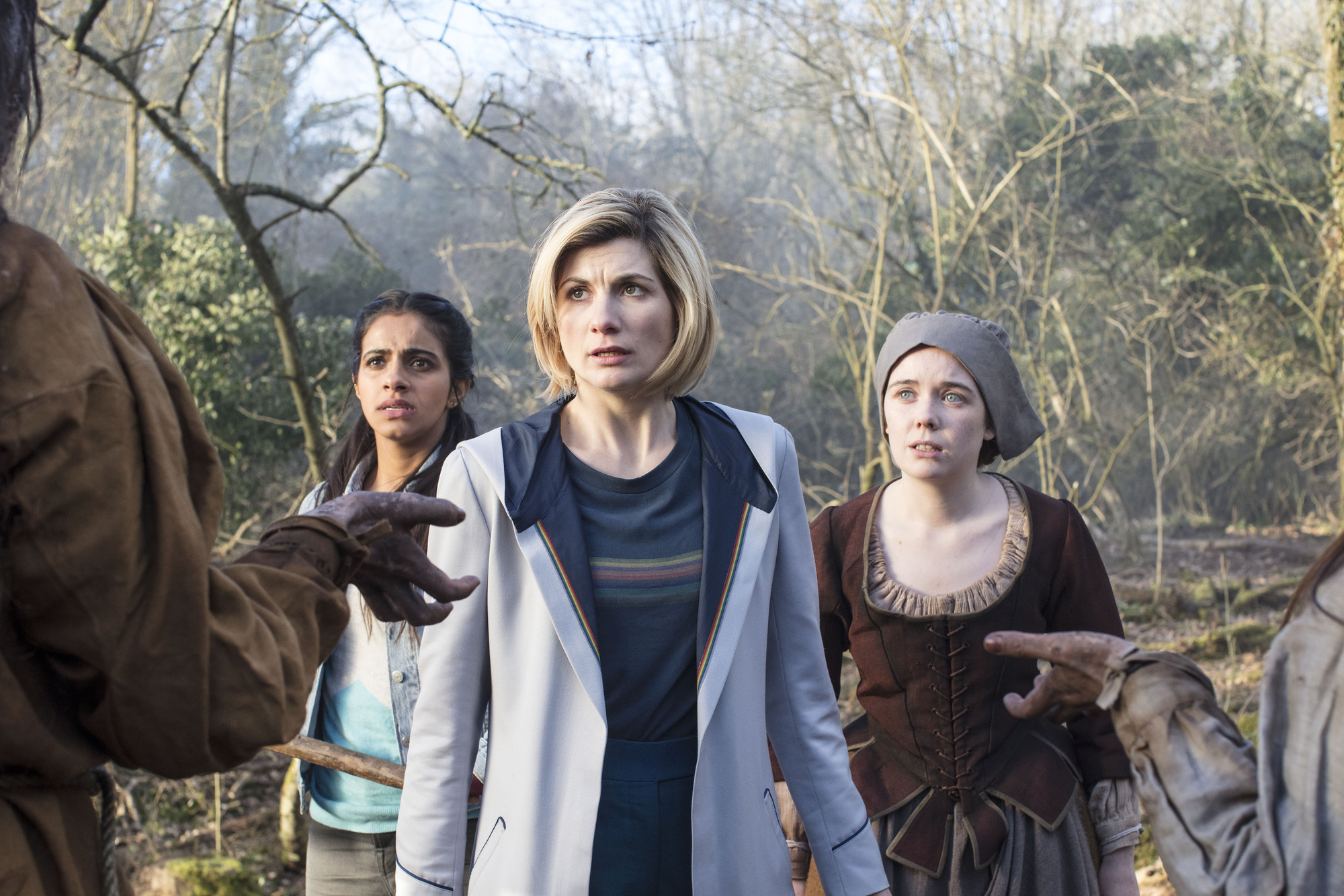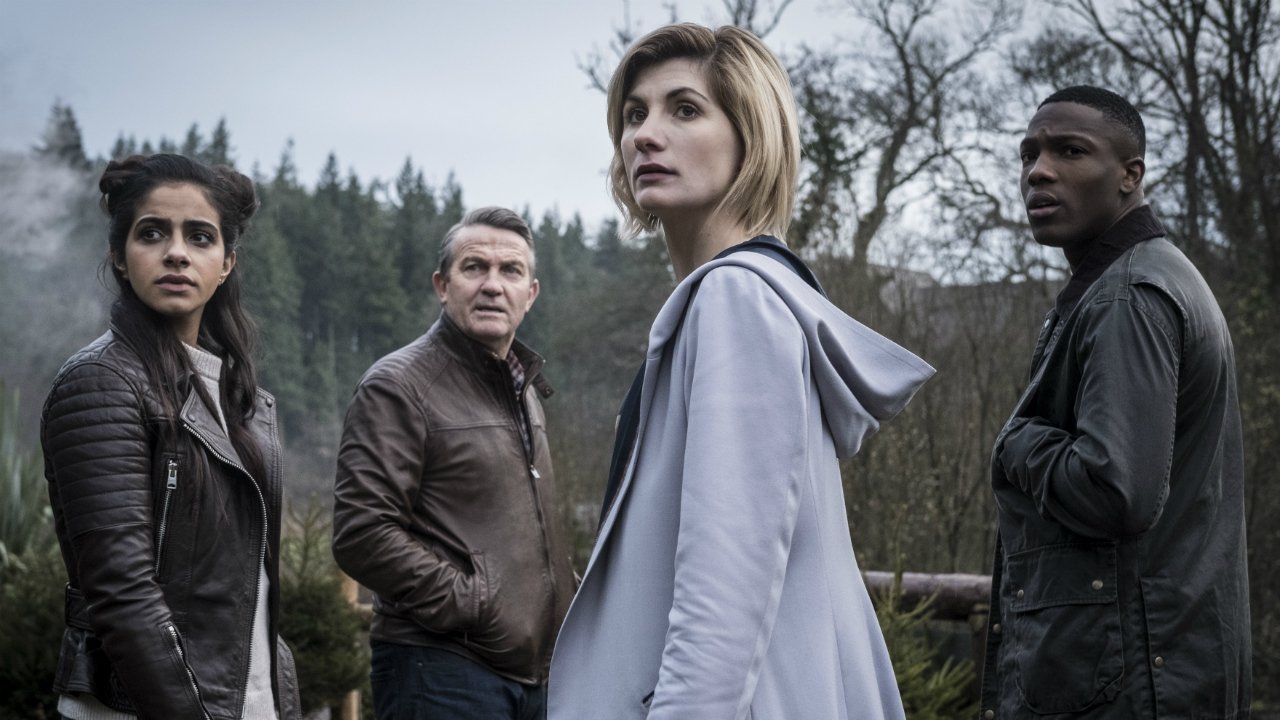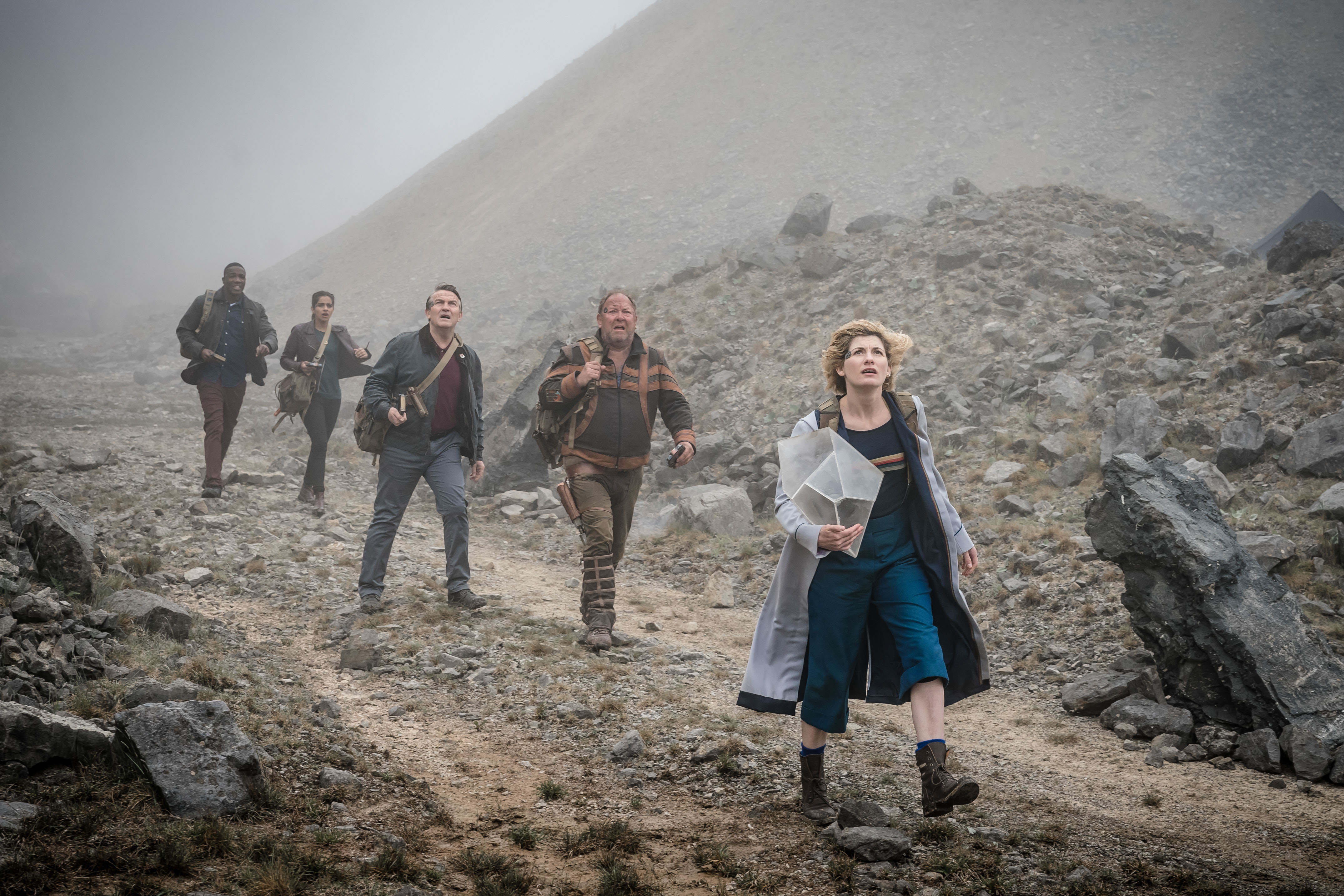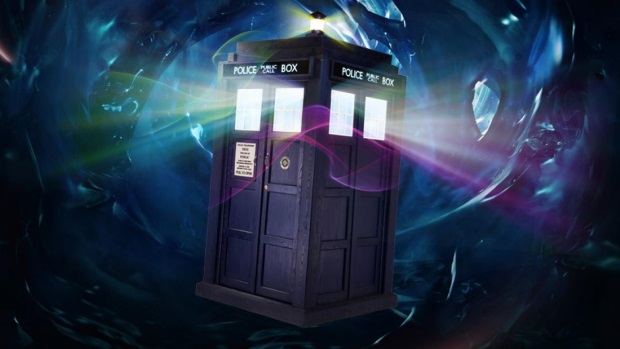Doctor Who: what lies ahead?
With the TARDIS not due to land again until 2020, what's next for the show, and how might fans can tackle a year without the Doctor…
Warning: spoilers for the New Year’s Day special, Resolution, lie below.
The wheelie-bins are being collected, the fridge is starting to feel suspiciously devoid of chocolates, and the wanderer from Gallifrey has slipped back into the stars. All that’s left to do now is twiddle our thumbs and wait patiently for a full calendar year to pass before we’re once again taken on adventures through time and space. That’s no fun, though, so let’s stave off the post-Christmas lull by considering where Doctor Who has left us (Croydon? Aberdeen?) and indulge in some wild speculation about what might be next.
To begin with, let’s look at the air date itself, and the mysterious decision to take what amounts to another gap year so soon. With a show as iconic and popular as Doctor Who, there’s never any shortage of scuttlebutt surrounding the programme’s production. Much of it turns out to be nothing more than rumours and speculation, of course, but occasionally there’s a piece of tittle-tattle that seems so specific – or later gets at least partially confirmed – that it gains a little credence.
Such was the case with a short-lived story from November, back when series eleven was nearing its conclusion, which suggested all was not well behind the scenes. Showrunner Chris Chibnall, so the gossip went, had originally come to the BBC with a five-year, three-series plan for Doctor Who – one that would necessitate a hiatus in 2019 while the second batch of episodes were prepared. In the wake of the show’s resurgence, it was first suggested by Starburst Magazine, then reported by Doctor Who TV, that there was pressure on the Doctor Who production team to compact their schedule and bring at least a handful of episodes forward to fill the void of 2019 and the Christmas Day slot in particular.
Had that happened, those rumours insisted, the likelihood was that Chris Chibnall and Jodie Whittaker would have left Doctor Who shortly after. None of this came to pass, however, and the announcement that the programme would return in 2020 was swiftly followed by confirmation that its star and showrunner would both be returning. This was the first we got to hear confirmation of the gap year, though, and now the question lingers – will the new production team soon be fully geared up and ready to deliver a suite of stories at the start of every year, or might there be another prolonged gap between 2020’s run and Jodie Whittaker’s third, and possibly final, stint as the Doctor?
Doctor Who is important, both to its fans and to the BBC, and it’s equally important that it gets the time and care it needs to be a success. Even so, it’s hard not to think back to the days of David Tennant; a time when we were being treated not just to a regular complement of fourteen episodes, but also Torchwood, The Sarah-Jane Adventures and even CG animated romps starring the Tenth Doctor. Granted, your mileage may vary on how much you cared about the various spin-offs, but it’s clear that then-showrunner Russell T. Davies was determined to make the most of the show’s unexpectedly successful return.

By contrast, it’s hard not to wonder if the softly-softly approach is going to dampen some of the momentum this eleventh series has established. While it’s impossible to deny that the Thirteenth Doctor’s debut has disappointed some vocal fans of the show, it would be equally disingenuous to suggest that the more straightforward stories haven’t reignited the interest of plenty of new viewers, not to mention others who’d previously been turned off by too much timey-wimey trickery. The audience statistics themselves are worth discussing, even if the picture they paint isn’t quite as doom-and-gloom as some would like you to believe.
Putting the Christmas Specials aside, as they always average significantly higher than the show’s bread-and-butter weekly episodes, a few trends in the viewing figures present themselves. The first episode in a new run always pulls in more pairs of eyes than others in the series, more-so if there’s a new Doctor waiting in the wings. The Woman Who Fell To Earth was particularly popular, with around eleven million viewers, and a sizeable drop the following week was only to be expected.
The second thing we can observe is that, by and large, Doctor Who has averaged around seven million viewers since its 2005 return – again, discounting the Christmas specials, which bump up the averages. There are ups and downs every year, of course, but it was only in the latter half of Peter Capaldi’s tenure that the figures slumped, and slumped consistently, down to around five million – the same kinds of numbers the show was managing at the time of its cancellation in 1989 (a very different time for television, of course). By the end of this year’s run, episodes were reaching between six and seven million viewers once again.

The BBC will certainly have taken note of this year’s figures, particularly given that they felt the need to release a second trailer for the New Year’s Day special to stoke up some Dalek-based excitement. While it’s a shame for those involved that the revamped series hasn’t seen the sizeable boost they were probably hoping for, what might be more concerning is that this year there was a steady week-on-week decline – the sort you’d expect to see from a heavily serialised drama show.
It’s a pattern that Doctor Who has historically averted – yes, seven million viewers may be the average, but its individual episode figures have always pinged around all over the place. Indeed, there are plenty of two-parters, like Silence In The Library / Forest Of The Dead, that actually gained viewers for their second half. This year, viewer behaviour has been far more predictable, and not in the way the producers will have been hoping for.
Whatever the reason for this year’s gradual audience exodus, it’ll be something that Auntie Beeb will be keen to address ready for 2020. This may prove to be a bit of an uphill struggle, as the show’s gap years, split seasons, and other deviations from a solid, regular block of telly tend to lose people along the way. Both Matt Smith and Peter Capaldi’s episodes suffered from disjointed scheduling, and both Doctors struggled to recover their wayward audience upon their return. It’s no stretch to imagine that the same thing will happen to Team TARDIS, and the loss of momentum will need to be countered through 2019 as BBC Worldwide’s marketing department work to ensure Doctor Who stays relevant this year.
That charm offensive begins in just a few days with the release of the series 11 boxset – not that this has stopped some of Amazon’s more rambunctious critics from ferociously down-voting it already. It’s worth mentioning that, unlike many of the other boxsets, this compilation doesn’t include the Christmas Special Twice Upon A Time, so completionists will need to add that to their collection separately. Resolution is also notably absent, though it’s more likely that’ll pop up as part of a series 12 set many, many months from now. This year’s soundtrack, which sees musician Segun Akinola taking over composing duties from Murray Gold, also drops this month.

If you’re hungry for more Whittaker-branded adventures, a range of spin-off media was released in time for Christmas, including three original novels, an official annual and a TARDIS Instruction manual. If graphic novels are more your thing, Titan Comics begin the next arc of their Thirteenth Doctor series in February, and if you’re on the fence about all of this expanded universe malarkey, then you should definitely mark the Fourth of May in your calendars – it’s Free Comic Book Day and there’s a Doctor Who issue being given away at participating retailers.
All that said, if you’d rather spend more time with the Doctor’s past regenerations, January also sees the release of the novel Doctor Who Meets Scratchman– if the name sounds familiar, that’s because it started life as a movie pitch dreamed up by Tom Baker and Ian Marter during their time on the show. Ostensibly to celebrate the show’s fifty-fifth anniversary, BBC Books has finally taken the plunge and published the tale in written form, though there’ll also be an audio CD version read by Baker himself.
And speaking of CDs, we’d be remiss if we didn’t mention the audio auteurs at Big Finish, who are celebrating twenty years of producing Doctor Who dramas – and innumerable spin-offs – this year. The main event is undoubtedly The Legacy Of Time, a big old crossover event that pairs up classic and revival era characters, like sending UNIT head Kate Stewart back in time to tangle with the Third Doctor. That’s alongside a monthly assortment of special releases that range from the First Doctor (portrayed by David Bradley) to a series focused on Missy and even a boxset starring Rose and the Tylers later in the year – not to mention the regular monthly adventures of the Fifth, Sixth and Seventh Doctors. Whew.
What, then, of the series that started it all? What kind of shape might Doctor Who finally take when it returns to our screens? Well, if the past few months have proven anything, it’s that Chris Chibnall has a very definite plan for his version of Doctor Who – its messages, the types of stories it wants to tell and who it wants to speak to. A recent Radio Times interview reaffirmed his commitment to stories that tackle social issues; whether there’s a five-year plan in play or not, it’s clear that he’s intent on sticking to his guns. He has slyly alluded to the return of more classic monsters, however, so we might well get to see Graham shooting Cybermen in the foot or Yaz drop-kicking a Graske into a bin.
2018 was a year where politics insinuated itself into every aspect of people’s lives, whether they wanted it to or not. Everything threatened to become partisan: us or them, Remain or Leave, Republican or Democrat, with news of collusion and conspiracies around the world making people question the real agenda of everything from adverts and social media posts to the choice of guests on comedy panel shows. Suddenly, everyone was being told to take sides.
For Doctor Who to pick that year, of all years, to step out from behind the allegories of science-fiction and tackle political and social issues head-on, rather than through the lens of some fictional bug-eyed monsters, was a brave choice that helped the stories resonate strongly with many people. It also had consequences – it was no longer a chance to escape, even if just for an hour, from the real-world problems that have assailed and exhausted us all year. To say for sure whether it was the best choice for the show will require the benefit of hindsight.

If a week is a long time politics, then 2020 is a distant alien landscape indeed, and we don’t have a TARDIS to take us there. The world will be a different place by the time the Doctor returns, and we’ll all have changed too. Series 12 of Doctor Whowill certainly have lots to say about what it means to be human – it always has done, even if it’s never before worn its twin hearts so regularly on its sleeve.
The freshness of this first run – the changes in style and tone, a female Doctor, a cramped and very alien TARDIS control room – will have faded away by then. Without the novelty of being different, each script will have to double-down if it wants to hold the attentions of its audience, not to mention win back those who remain unconvinced. Hopefully, next year’s stories will be a bit more adventurous in their scope, told with a little more deftness and wit, but remain just as gorgeous to watch and listen to. With luck, they’ll continue to inspire and enthral a whole new group of kids and adults alike.
Mind, if Chibnall doesn’t bring back the Zarbi, I’m definitely going on strike. Harrumph.
